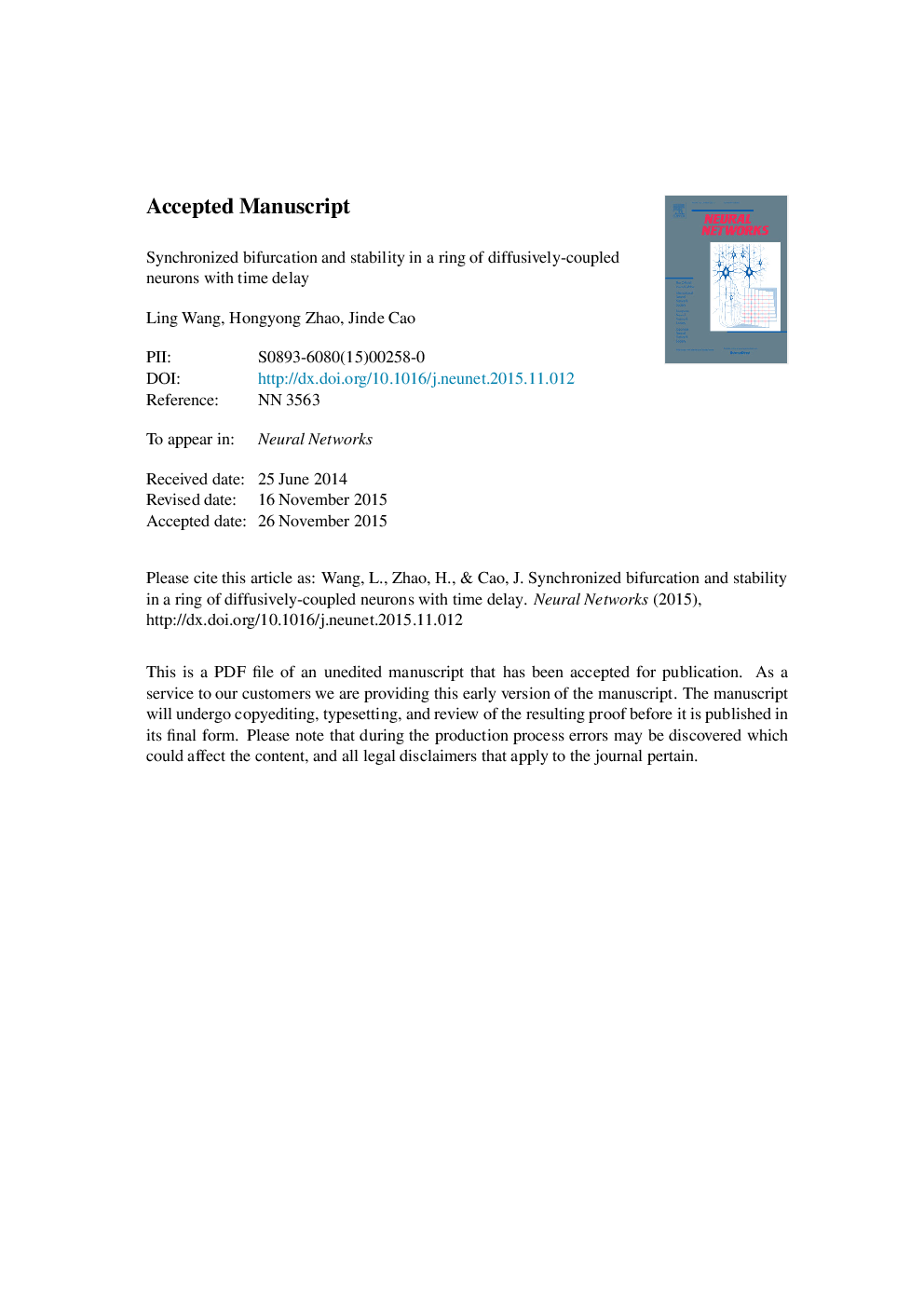| Article ID | Journal | Published Year | Pages | File Type |
|---|---|---|---|---|
| 6863240 | Neural Networks | 2016 | 24 Pages |
Abstract
In this study, we consider a ring of diffusively coupled neurons with distributed and discrete delays. We investigate the synchronized stability and synchronized Hopf bifurcation of this system, as well as deriving some criteria by analyzing the associated characteristic transcendental equation and by taking Ï and β as the bifurcation parameters, which are parameters that measure the discrete delay and the strength of nearest-neighbor connection, respectively. Our simulations demonstrated that the numerically observed behaviors were in excellent agreement with the theoretically predicted results. In addition, using numerically simulations, we investigated the effects of Ï and β, as well as the diffusion on dynamic behavior. Our numerical results showed that the addition diffusion to a stable delay-differential equation (DDE) system may make it unstable and that the diffusion may make the system synchronous, whereas it is asynchronous without the diffusion term.
Related Topics
Physical Sciences and Engineering
Computer Science
Artificial Intelligence
Authors
Ling Wang, Hongyong Zhao, Jinde Cao,
